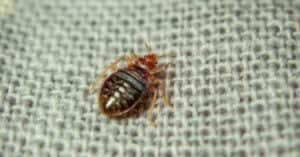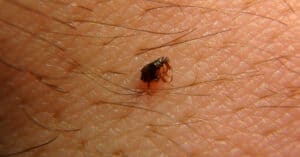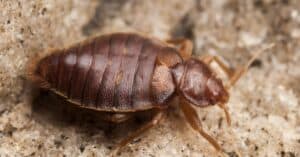Just when you think your bed is a sanctuary of relaxation and rejuvenation, you may want to reconsider… You might be sharing your mattress with a blood-sucking parasite called the “bed bug.” This creepy crawly can cause a significant amount of discomfort and interrupted sleep. Especially when attaching itself to your skin and feeding off your blood. In addition to having a reputation for biting your skin and leaving you with ghastly, itchy red blisters. These pests are nocturnal, giving them the upper hand to crawl out of dark crevices and attack at night, preventing them from getting caught.

So, have you ever wondered why your mattress attracts bed bugs? Well, for the most part, humans provide an abundant food source of blood for bed bugs. Therefore, making your bed an ideal habitat for them to feed, breed, and infest. Not only is our blood essential to them, but body heat and the scent of sweat secretions keep them coming back for more.
If you have ever come across an infestation of bed bugs, this blog post will reveal smells that bed bugs cannot handle and routines on how to keep these critters away from invading your personal space.
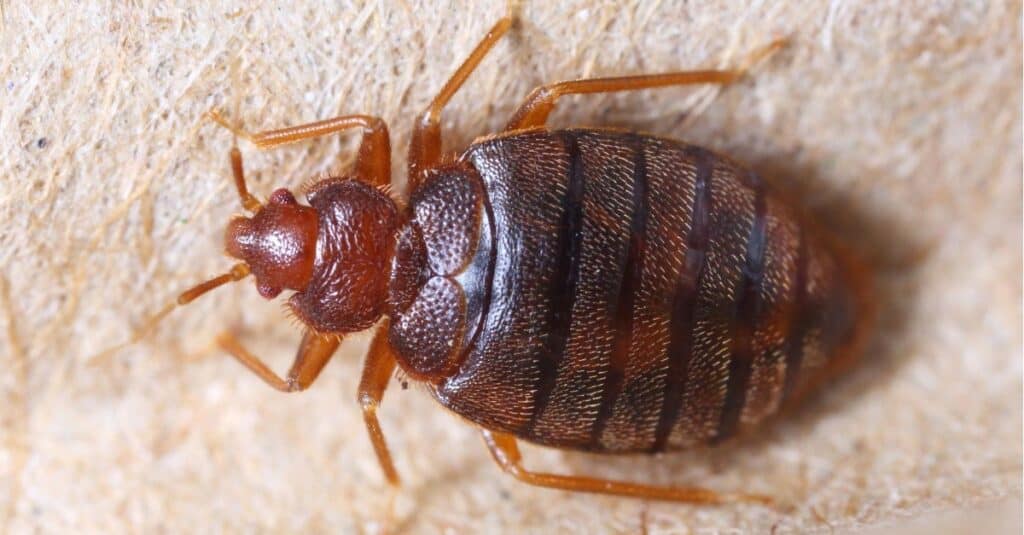
If you see tiny, rust-colored stains in your bed… Be careful! You might be sharing your mattress with a blood-sucking parasite called the “bed bug.”
©iStock.com/smuay
Smells Bed Bugs Dislike
1. Rubbing Alcohol
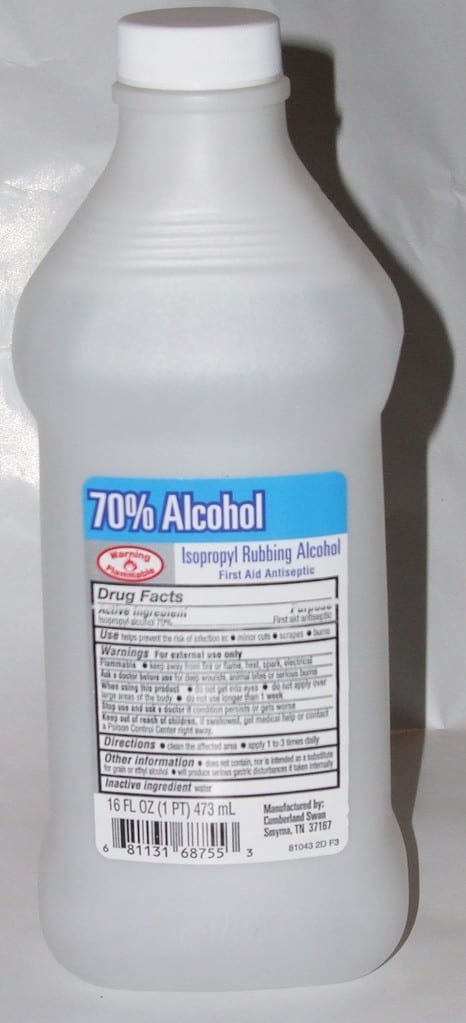
A bed bug will dry out when they come into contact with rubbing alcohol.
©Craig Spurrier, CC BY 2.5 – License
A popular home remedy for killing bed bugs and repelling them from infested areas is rubbing alcohol. When bed bugs come into contact with this solution, their bodies will dry out. That causes their outer protective layer to become damaged, making it difficult for them to survive. Furthermore, the pungent odor of rubbing alcohol repels these insects. Resulting in bed bugs to avoid areas where the substance has been applied. Just keep in mind that rubbing alcohol is flammable. Therefore, using this liquid in a well-ventilated location and away from open flames or heat sources is crucial.
2. Tea Tree Oil
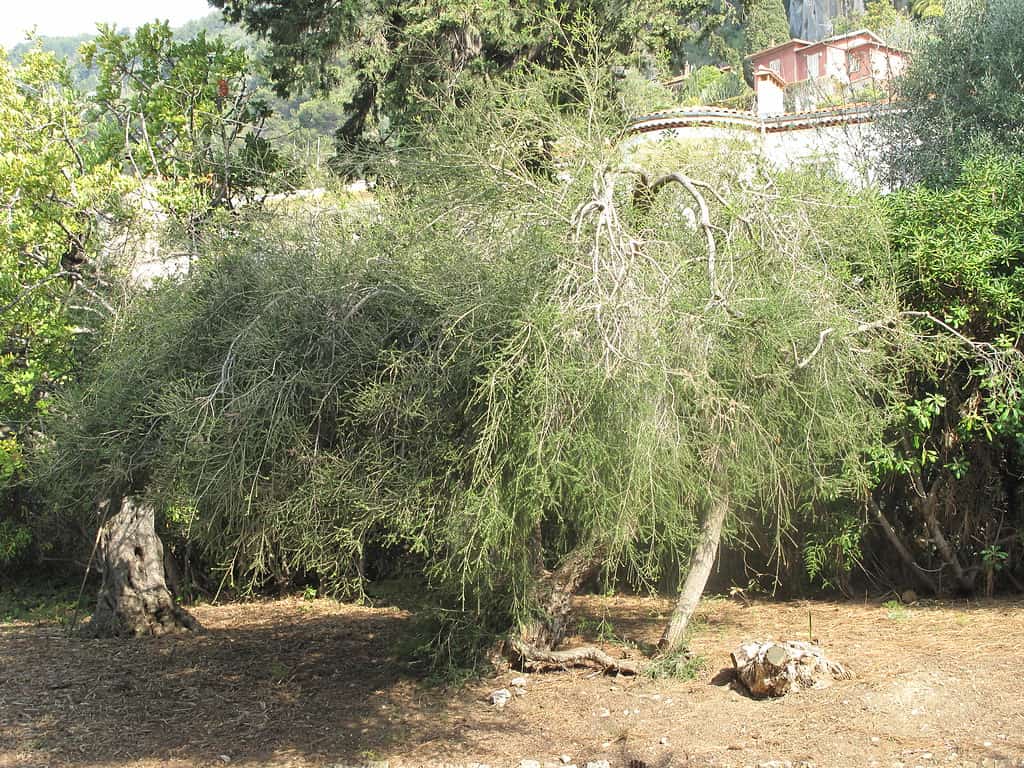
Tea Tree Oil, also known as melaleuca oil is taken from the Tea Tree. This oil harms bed bugs’ nervous system.
©Tangopaso, Public domain, via Wikimedia Commons – License
Due to its antibacterial, anti-inflammatory, and antifungal properties, tea tree oil has become a well-known natural home remedy for warding off bed pests. The ingredient called terpinen-4-ol found in tea tree oil can eliminate these bugs. In fact, it harms their nervous and respiratory systems when they are subjected to the oil. Bed bugs may also avoid regions that have been treated with the substance due to the oil’s strong scent, which can be repulsive to them.
Although tea tree oil can be useful in warding off bed bugs, you should only apply it sparingly. Undiluted tea tree oil may irritate some people’s skin and trigger allergic reactions in others. Before using the oil on your skin or in your house, dilute it with a carrier oil, such as almond or coconut oil.
3. Peppermint Oil
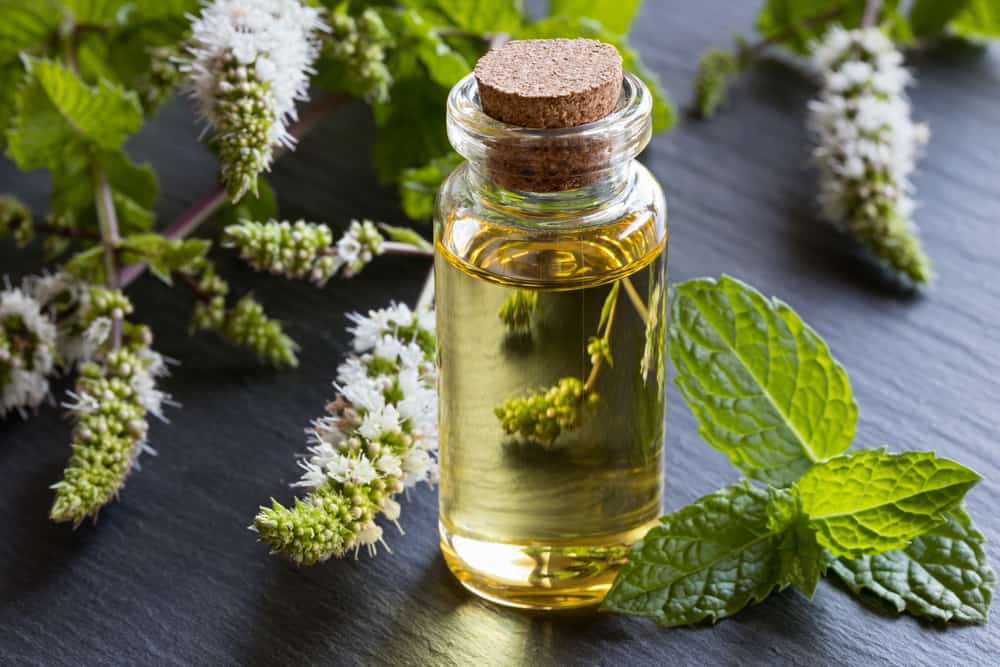
A bottle of peppermint essential oil is a natural repellent for bed bugs.
©Madeleine Steinbach/Shutterstock.com
Another effective natural repellent for these insects is peppermint oil. The fragrance of the essential oil contains menthol. Researchers have discovered menthol is especially effective at killing bed bugs and their eggs.
4. Cinnamon
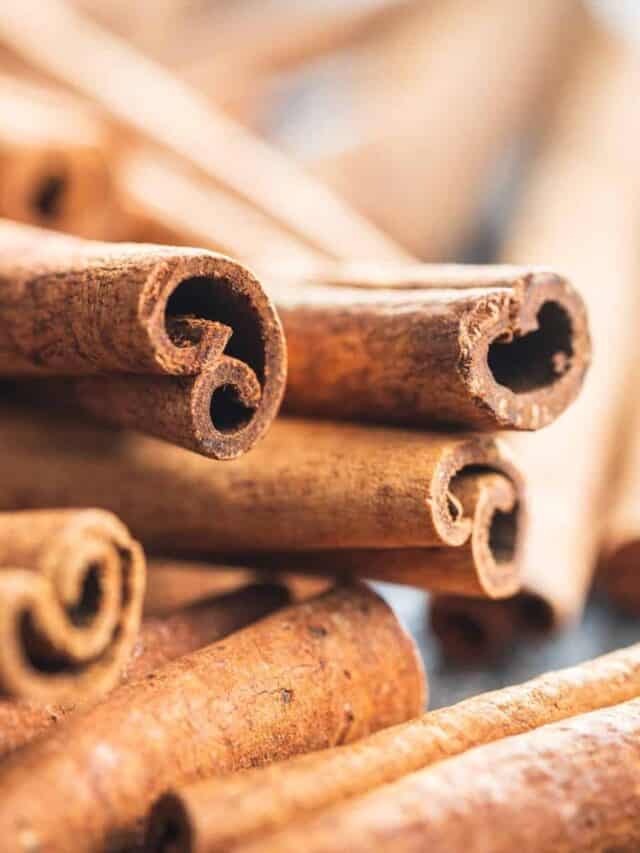
Bed bugs dislike the smell of this spice because it includes a number of compounds that are highly toxic to them.
©iStock.com/jirkaejc
Cinnamon is a spice with a warm, sweet aroma that has been frequently used as a natural bed bug repellent. Bed bugs dislike the smell of cinnamon because it includes a number of compounds that are extremely toxic to these insects, including cinnamaldehyde and cinnamic acid.
Cinnamon can, however, be messy and can leave stains on materials or other surfaces. Simply sprinkle cinnamon around the edge of your bed or infested area if you don’t want to place it on your mattress. Use this spice sparingly, as its particles can irritate the respiratory system causing unwanted health issues.
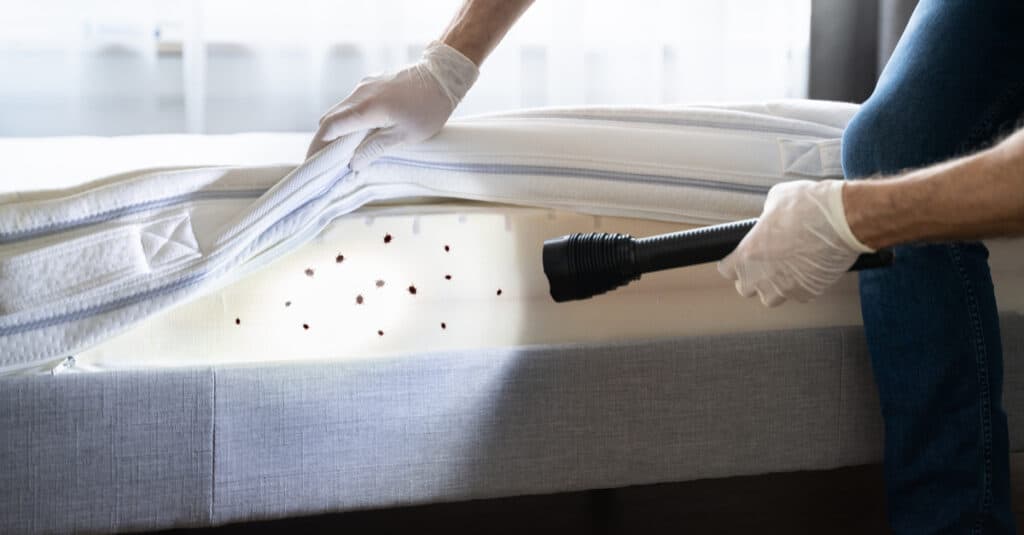
Protective coverings should always be used to help prevent your mattress from being infested.
©Andrey_Popov/Shutterstock.com
How to Prevent a Bed Bug Infestation
If you’re concerned about bed bugs infesting your mattress, you can take several steps to prevent them from settling in your bed. The first step is to inspect your sheets or mattress for any tiny, rust-colored stains that might be caused by bed bugs that have been feeding on you. Additionally, if you discover the shedding of insect skins or the appearance of tiny, light-colored eggs, both are signs of an epidemic.
Next, clean your bedding and mattress on a frequent basis. Washing your linens and blankets in hot water can aid in the elimination of any bed bugs or eggs that may be present. Finally, another alternative is to use mattress and pillow protective covers. These covers are impenetrable to bed bugs and can aid in the prevention of infestations in your mattress and pillows.
While natural remedies and spring cleaning can help in some instances, more severe infestations might require the assistance of a professional who deals with pest control. Regarding pests, it’s critical to be proactive and vigilant. They can rapidly become a significant problem if left unchecked. Keeping your house pest-free will result in a safe and healthy living environment for you and your family.
How Do You Identify Bed Bugs?
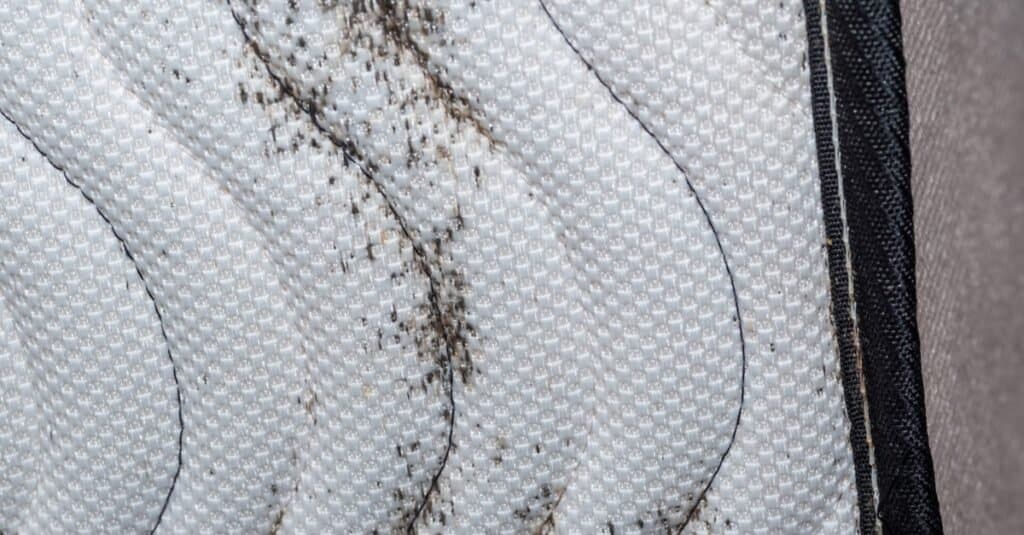
These dark mattress stains are from bed bugs.
©whitejellybeans/Shutterstock.com
Identifying bed bugs is not always easy. They are small, nocturnal pests that feed on the blood of humans and animals while they sleep. Not only can they be hard to spot because of their size, but they also hide in cracks and crevices during the day making detection even more difficult.
To identify an infestation, look for these signs:
• Small brown spots or stains on mattresses, sheets, and other surfaces where bed bugs have been feeding.
• Shed exoskeletons and dark spots of bug excrement on bedding, furniture, or carpets.
• Live bugs, eggs, or nymphs in the creases and folds of mattresses and bedding.
• Tiny white eggs which may be stuck to fabric fibers.
If you suspect an infestation and are unable to control it yourself, a professional can help you. Pest control companies use pesticides that contain pyrethrins or pyrethroids to control bed bugs.
Summary Of The 4 Smells That Bed Bugs Absolutely Hate
| Number | Smells That Bed Bugs Absolutely Hate |
|---|---|
| 1 | Rubbing Alcohol |
| 2 | Tea Tree Oil |
| 3 | Peppermint Oil |
| 4 | Cinnamon |
The photo featured at the top of this post is © simon berenyi/Shutterstock.com
Thank you for reading! Have some feedback for us? Contact the AZ Animals editorial team.



